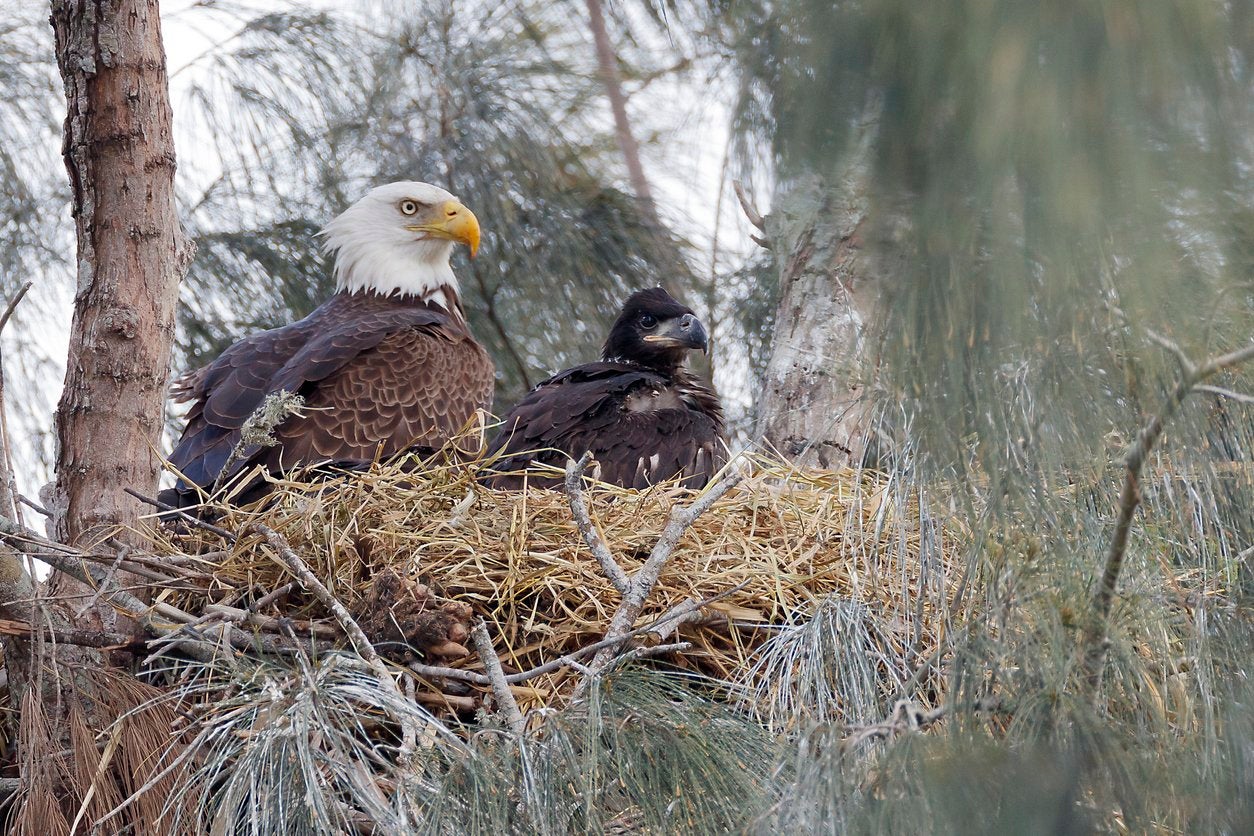The highly pathogenic avian influenza, commonly known as bird flu, has been detected across Georgia in the formerly endangered bald eagle species.
According to the Georgia Department of Natural Resources, the infected birds have been found mainly in the coastal areas of Chatham, Liberty and Glynn counties. Other dead bald eagles found in Florida, South Carolina and North Carolina have tested positive for the highly infectious disease.
Avian flu interferes with the mating process of infected birds, and DNR officials say that an aerial survey of Georgia’s six coastal counties shows about a 30% decrease in productive nests. Some of the nests failed altogether, and others showed a decrease in the number of expected eaglets.
Infected birds can successfully mate, but the disease is eventually fatal to both parents and young.
MORE: Harlem celebrates Earth Day at Bubbles or Not Dive Shop
Authorities believe that the bald eagles found likely were infected by preying on or scavenging coastal ducks that are known to carry the disease.
According to the U.S. Agriculture Department, avian flu has been detected in wild birds in more than 30 states this year. In Georgia, 11 wild bird species including lesser scaup, gadwall, American wigeon and bald eagle have tested positive.
The Georgia DNR is quick to state that the formerly endangered bald eagle is thriving throughout the inland areas of Georgia; however, an article in the Atlanta Journal and Constitution states that poultry producers across Georgia are watching the coastal outbreak closely. Chicken processing is a $4 billion dollar industry in Georgia, according to the AJC.
While there have been no recorded cases of avian flu passed along to humans in North America, according to Savannah Riverkeeper Tonya Bonitatibus, the avian flu is much like COVID-19 in that it can be transmitted to humans and the bald eagle deaths could be a bit like canaries in coal mines indicating the spread of the disease..
“Everyone is watching this very closely, especially in places across Georgia that have concentrated animal feeding operations or large chicken farms. The avian flu has turned up in farms in Indiana and Maine and that is where it gets scary,” Bonitatibus said.
For those who raise small backyard chicken flocks for eggs, Bonitatibus suggests not adding to the flock this year from unknown sources such as farmers markets until more research results are available.
“It could be a slow march to hop from wild ducks to birds of prey and then into chickens that are their way to being harvested,” Bonitatibus said.
MORE: Brand New Bag: Public art, Press Play, hip hop
According to the USDA, avian flu has been found in backyard flocks in at least eight states, but so far no cases have been found in Georgia. While, the chance of the flu making it into eggs is low, extra care should be taken with locally produced eggs by washing them thoroughly.
According to Bonitatibus, if a backyard flock of chicken suddenly dies with no obvious trauma, the owner should contact either the Centers For Disease Control or the DNR.
“Also, if you should come across a dead bird of prey like a hawk, you should not touch the animal, but report it immediately,” Bonitatibus said.
Scott Hudson is the senior reporter for The Augusta Press. Reach him at scott@theaugustapress.com









